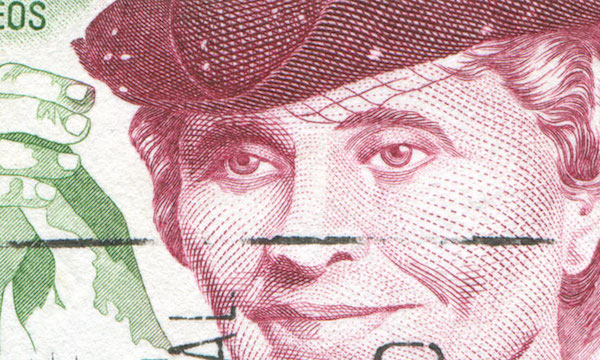by PETER DREIER

The Texas Board of Education recently voted to remove Helen Keller from the state’s required social studies curriculum. This is a good excuse to remind people about Keller, who is one of the most iconic public figures of the past century but whose life and legacy is misunderstood. Most people think of her as a blind person who overcome obstacles to become an advocate for the blind. That’s true. But she was also a feminist, socialist, pacifist, civil libertarian, and civil rights activist. I wrote this tribute to her in 2012.
Here’s what they don’t teach: When the blind-deaf visionary learned that poor people were more likely to be blind than others, she set off down a pacifist, socialist path that broke the boundaries of her time—and continues to challenge ours today.
So long as I confine my activities to social service and the blind, they compliment me extravagantly, calling me ‘arch priestess of the sightless,’ ‘wonder woman,’ and a ‘modern miracle.’ But when it comes to a discussion of poverty, and I maintain that it is the result of wrong economics—that the industrial system under which we live is at the root of much of the physical deafness and blindness in the world—that is a different matter! It is laudable to give aid to the handicapped. Superficial charities make smooth the way of the prosperous; but to advocate that all human beings should have leisure and comfort, the decencies and refinements of life, is a Utopian dream, and one who seriously contemplates its realization indeed must be deaf, dumb, and blind.
—Helen Keller (letter to Senator Robert La Follette, 1924)
The bronze statue of Helen Keller The bronze statue of Helen Keller that sits in the U.S. Capitol shows the blind girl standing at a water pump. It depicts the moment in 1887 when her teacher, Anne Sullivan, spelled “W-A-T-E-R” into one of her 7-year-old pupil’s hands while water streamed into the other. This was Keller’s awakening, when she made the connection between the word Sullivan spelled and the tangible substance splashing from the pump, whispering “wah-wah,”—her way of saying “water.” This scene, made famous in the play and film “The Miracle Worker,” has long defined Keller in the public mind as a symbol of courage in the face of overwhelming odds.
Less well known (but no less inspiring) is the fact that Keller, who was born in 1880 and died in 1968, was a lifelong radical who participated in the great movements for social justice of her time. In her investigations into the causes of blindness, she discovered that poor people were more likely than the rich to be blind, and soon connected the mistreatment of the blind to the oppression of workers, women, and other groups, leading her to embrace socialism, feminism, and pacifism.
Early Life
Keller was born on a plantation in Tuscumbia, Alabama, to Arthur Keller, a former Confederate officer and a conservative newspaper publisher, and Kate Keller, a descendant of John Adams. At nineteen months old, she lost her sight and hearing as a result of a fever. She became uncontrollable, prone to tantrums—kicking, biting, and smashing anything within reach. In that era, many blind and deaf people were consigned to an asylum. Some family members suggested that this was where Helen belonged.
Instead, her mother contacted the Perkins School for the Blind in Boston, which recommended that a former student, the 20-year-old Sullivan, become Helen’s private tutor. In 1887 Sullivan—the daughter of poor Irish immigrants and nearly blind herself—moved to the Kellers’ home. She helped calm Helen’s rages and channel her insatiable curiosity and exceptional intelligence. She patiently spelled out letters and words in Keller’s hand. With Sullivan’s support, her student soon learned to read and write Braille, and by the age of ten she had begun to speak.
Her story became well known and she, a celebrity. Newspapers and magazines in Europe and America wrote glowing stories about the young Keller. Her family connections and fame opened up many opportunities, including private schools and an elite college education. Mark Twain, who admired Keller’s courage and youthful writings, introduced her to Standard Oil tycoon Henry Huttleston Rogers, who paid for her education. She later acknowledged,
Monthly Review Online for more
